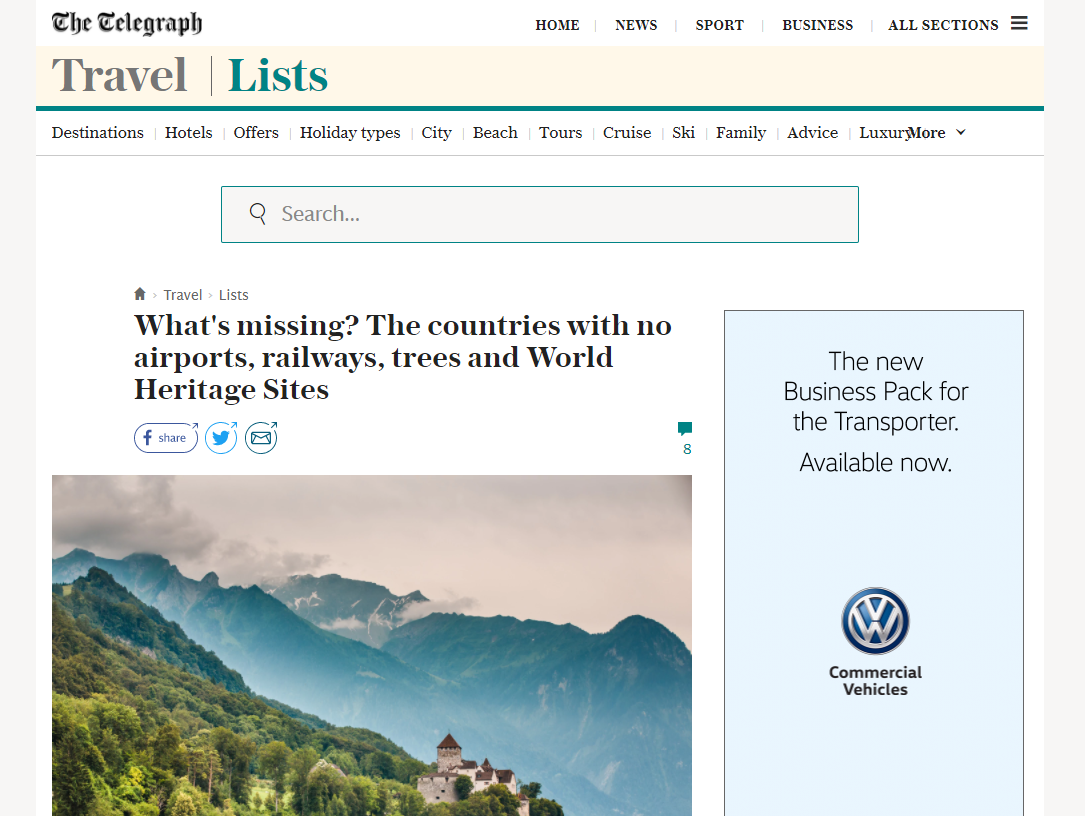
The Telegraph has apologised over a travel article in which it admitted to repeating an “anti-Semitic trope”.
The Telegraph Travel article, headlined: “What’s missing? The countries with no airports, railways, trees and World Heritage Sites”, was published online on 26 September last year.
It included the claim that “only three countries on the planet don’t have a central bank owned or controlled by the Rothschild family”, listing Cuba, North Korea and Iran.
The Campaign Against Antisemitism complained to the Independent Press Standards Organisation that this was inaccurate and a “modern version of an anti-Semitic myth that this particular Jewish family are behind the world’s ills and part of a global Jewish conspiracy”.
It said the claim is usually only found on obviously anti-Semitic websites and said this meant the editorial processes leading to publication were “plainly inadequate”.
The campaign group first approached the Telegraph directly, resulting in the article being amended to remove the inaccuracy on the day of publication and both the journalist and the newspaper writing to apologise.
The Telegraph accepted that the claim was significantly inaccurate and said it was a “regrettable error, arising from momentary carelessness”.
The journalist could not recall where he had seen the claim, but the title said that if it was from an “obviously and egregiously anti-Semitic website” he would have been alerted to the risk of publishing it.
After IPSO began an investigation, the Telegraph offered to publish a correction as a footnote to the online article and later also offered to publish a standalone correction to appear for 24 hours on its travel homepage.
IPSO ruled the article had breached Clause 1 (accuracy), and said the apology offered – “Rothschild’s control of central banks: A correction” – should now be published.
The correction, published yesterday, said: “We accept that this is an anti-Semitic trope, although it was not included by the writer with anti-Semitic intent.
“We obviously accept that it was inaccurate and offensive, however, and we are very sorry that it found its way into our output. It has been redacted from the article.”
IPSO said: “The newspaper accepted that the inaccuracy arose from carelessness.
“It had been unable to say from which website or websites the claim had been taken from, and where the claim was on its face, highly implausible, the committee considered that to take no further steps to verify the claim represented a failure to take care not to publish inaccurate information and a breach of Clause 1 (i).
“The committee recognised the complainant’s concern that the claim about the Rothschild family’s control of central banks was an anti-Semitic conspiracy theory and welcomed the newspaper’s acceptance that it was a significant inaccuracy.”
The Telegraph told IPSO it would explain the background to the incident in routine editorial training and in its monthly updates to journalists, reminding them of “the importance of careful sourcing and fact checking”.
Email pged@pressgazette.co.uk to point out mistakes, provide story tips or send in a letter for publication on our "Letters Page" blog
